The opposition hoped for a democratic blossoming in Zimbabwe and an end to the country’s isolation. Instead, they got more of the same.
Nelson Chamisa, the 40-year-old opposition candidate, and his Movement for Democratic Change Alliance claimed the election was rigged in favor of Mnangagwa. A preliminary statement by the European Union Election Observation Mission to Zimbabwe painted the election campaign as peaceful, with “political freedoms” generally respected, but went on to accuse the state of the same anti-democratic tactics that have marred prior contests. Mnangagwa became the interim president after Mugabe’s presidency came to an end last November in a chaotic series of events that resulted in a military coup.
Amid all the election chaos, the complexity of Zimbabwe’s political landscape — and its native voices — can easily be lost as coverage is filtered through foreign reporters, a result of decades of nonexistent press freedom under Mugabe. The media can ignore or oversimplify important history and context: Zimbabwe is often depicted simply as a land of turmoil overseen by a strongman, with events likely to be distilled to violent moments.
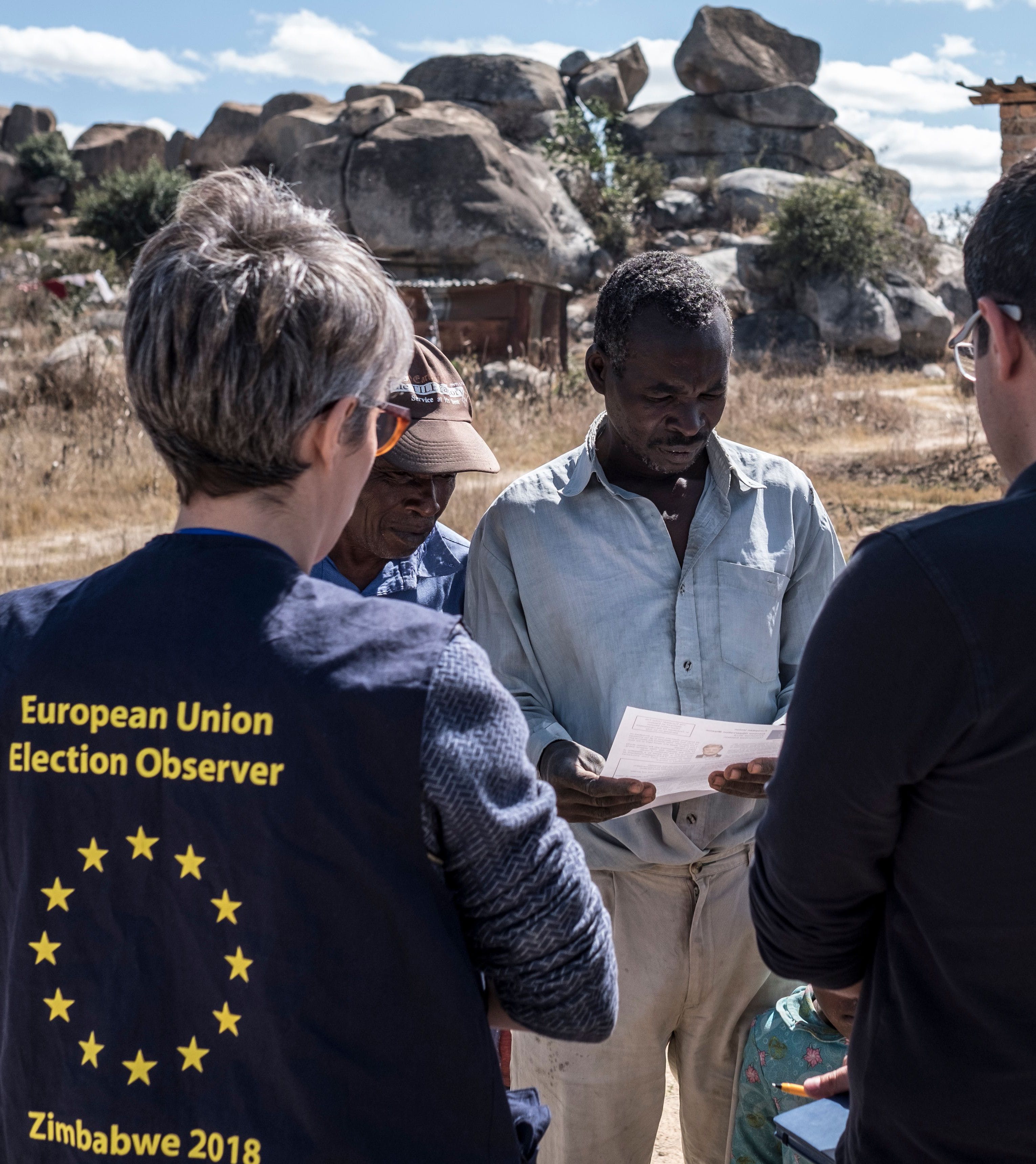
Members of a European Union election observation team speak to voters in Nyatsime, on July 24, 2018.
Photo: Marco Longari/AFP/Getty Images
Last week’s election presented an opportunity to regain some democratic control and perhaps show the world that, in the post-Mugabe era, Zimbabwean voices matter. If truly democratic elections could be certified by outside election monitors, Zimbabwe may well have been on the path to repairing its international standing, ending sanctions, and restoring a destroyed economy. Yet the election failed to deliver, instead maintaining the status quo — Mnangagwa’s victory has kept ZANU-PF the only political party to ever hold office in the country.“It was clear that no one wanted Zanu PF but the only way to prove that was through an election that was free, and fair, [and] credible,” Martin Manyange, a 27-year-old opposition supporter who lives in Harare, told The Intercept via WhatsApp. “Right now, I am disappointed.”
How Zimbabweans’ disappointments play out across the world remains to be seen — especially how the election will affect the country’s ties to the United States, Zimbabwe’s longest-standing official diplomatic relationship. The U.S. opened the first embassy in the newly formed Zimbabwe following negotiations by then-Secretary of State Henry Kissinger, who involved the U.S. in the independence struggle and helped steer Mugabe into power in 1980. Although the U.S. has poured the most humanitarian aid into Zimbabwe since 2002, relations between the countries eventually soured: Mugabe clung ruthlessly to power, driving Zimbabwe into isolation through economically devastating policy decisions and human rights abuses. American interest in Zimbabwe no doubt springs from its abundant resource wealth, including gold, diamonds, platinum, and tobacco — resources that attract today’s world powers’ attention. China aided independence guerrilla fighters in 1979 and today is the country’s largest investor. Speculation is rife that China played a role in Mnangagwa’s ascension. Russia has also recently sought opportunities for diamond and platinum mining projects, putting “military cooperation” on the table. Other countries under heavy U.S. sanctions — Iran and North Korea — have long-running ties to Zimbabwe.
It was on this geopolitical stage that the hopes of those who wanted a new dawn in Zimbabwe came crashing down in the wake of Mnangagwa’s victory. Emboldened by his win, Mnangagwa’s security forces are leading a broad crackdown on the opposition. MDC leaders are being arrested, and activists are going into hiding.
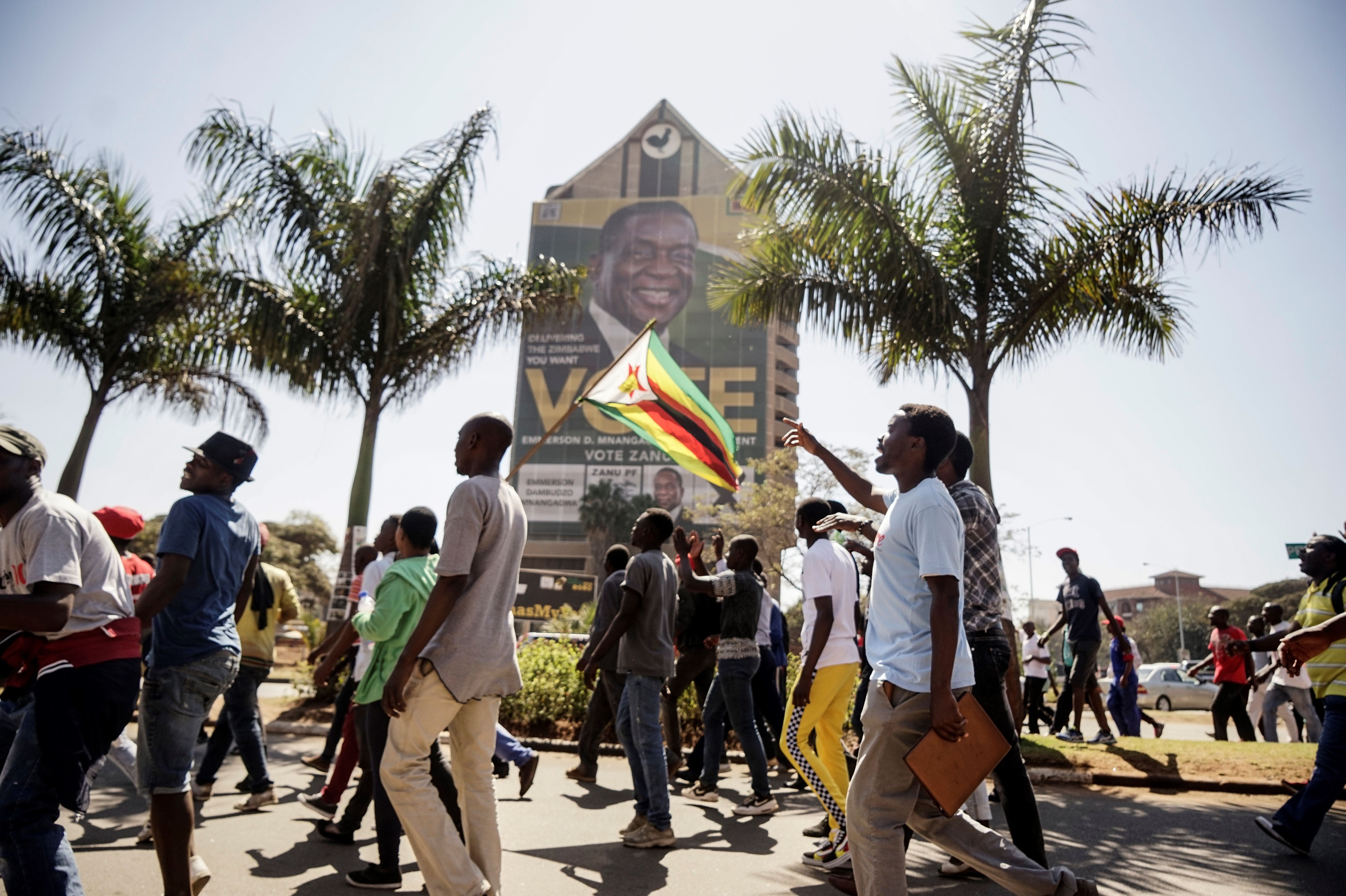
Photo: Zinyange Auntony/AFP/Getty Images
ANTICIPATION RAN HOT in the months preceding the first vote without Mugabe; hopes were high for a free and fair election that would unify Zimbabweans. For its part, ZANU-PF stoked the suspense by signaling that it was willing to end effective one-party rule and step down should the opposition win. Democratic space looked like it was opening up. People were free to criticize Mnangagwa’s leadership in public — a dangerous practice in Mugabe’s time. Opposition political parties even campaigned in ZANU-PF strongholds. During his short time as interim president, Mnangagwa signaled he was open to more reform when he traveled to Davos for the World Economic Forum, proclaiming, “Zimbabwe is open for business.”
This all bolstered expectations that the 2018 elections might bring real change. Citing the fact that the government invited international election observers, created a new biometric voter roll, and allowed opposition parties to campaign, Michelle Gavin and Todd Moss of the Council on Foreign Relations called the efforts “major progress in Zimbabwe.” However, they concluded, “the election itself appears to be less an effort at restoring the voice of Zimbabwe’s long-suffering citizenry than a charade aimed at the international community.”
The aftermath of the July 30 vote brought back all-too-familiar feelings. Things began to unravel as the opposition MDC made a preliminary claim of victory a day after the election. At a press conference, MDC official Tendai Biti speculated that the Zimbabwe Electoral Commission was delaying results unnecessarily — raising the possibility of vote tampering. “We know that it is in this period of delay and uncertainty that merchants of chaos and bishops of electoral frauds will do their own things,” said Biti. Nonetheless, Chamisa, the MDC candidate, declared that he won outright. “We’ve more votes than ED,” he posted to Twitter, calling Mnangagwa by his first and middle initials, ED. “We won the popular vote & will defend it!” A familiar storm of election insecurity once again hit the country.
The election committee planned to release presidential voting results on August 1, but announced results for the National Assembly instead. In those races, ZANU-PF won an overwhelming majority of seats. MDC supporters suspected something was afoot. Many had gathered at the party’s Harare headquarters, confident in an imminent presidential victory, but the news of the National Assembly results set them off marching. They were met by riot police and armed soldiers.
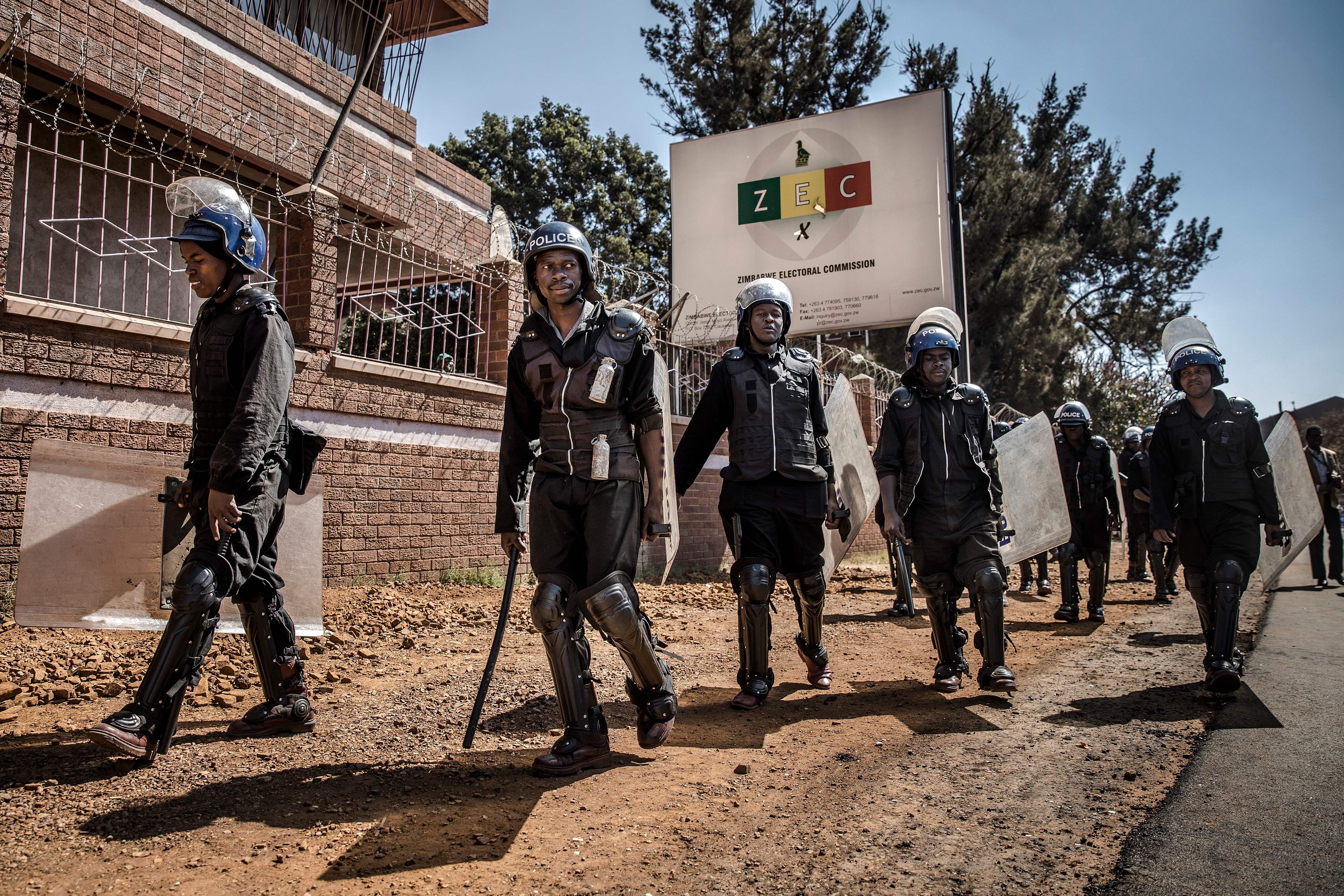
Zimbabwean anti-riot police officers stand guard at the entrance of the Zimbabwe Electoral Commission headquarters in Harare on Aug. 1, 2018.
Photo: Luis Tato/AFP/Getty Images
Some protesters turned to property destruction, rock-throwing, and attempted looting in the capital city. Many blamed the opposition for the violence and condemned those protesters who turned to destruction. “I think the opposition must take responsibility for inciting their supporters to protest violently,” said one Harare resident, who spoke to The Intercept anonymously for fear of reprisal.
By mid-afternoon, international news outlets were describing Harare as a war zone. The police, apparently unable to handle the protests, called in Zimbabwe’s army by invoking the Public Order and Security Act, which allows for police to be assisted by national defense forces. The law, condemned by Human Rights Watch, has been on the books since 2002 and effectively grants police the power to ban public gatherings, meetings, and utilize military backup. Military personnel are also granted the “same powers, functions, and authority” as police officers.
With the army deployed in Harare, brutality against the growing protest movement included beatings, and at least six civilians were shot dead. The United Kingdom’s Channel 4 News captured scenes from the street. In one instance, protesters threw rocks over the fence into ZANU-PF’s headquarters, and the army opened fire, trapping journalists in the line of one-sided fire. Headlines across the world used phrases like “troops, protesters clash” and described “deadly riots.” However, only small groups of protestors turned to destruction and demonstrators were unarmed. It was the military that opened fire, drawing wide condemnation. Fadzayi Mahere, an independent political candidate, called for Britain to condemn the violence on Twitter, adding, “Even if we were at war, the unjustifiable killing of unarmed civilians offends basic principles of international humanitarian law.” Mnangagwa, for his part, has promised an independent probe into the military actions — the same military which brought him into power.
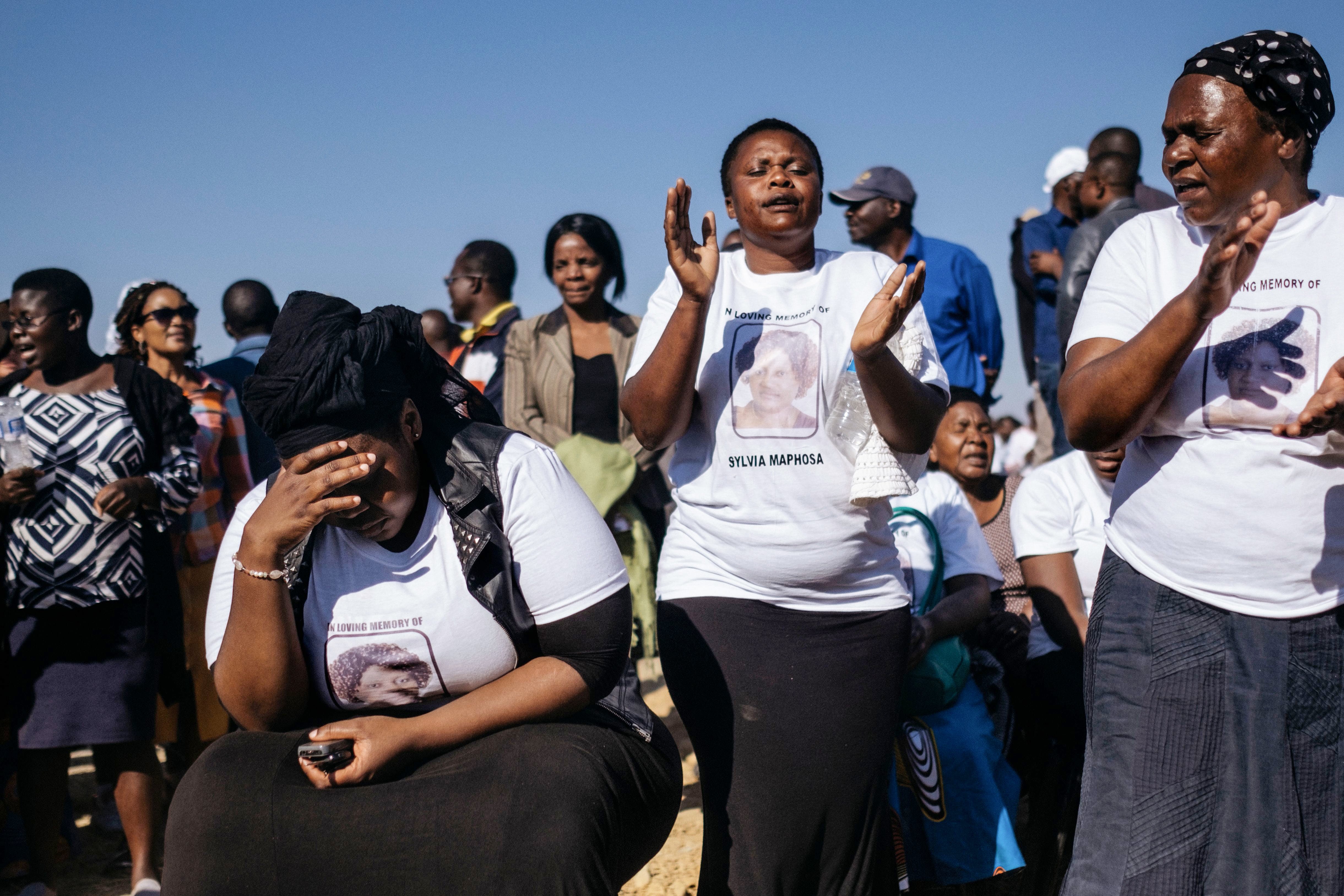
Relatives and friends mourn on August 4, 2018, at the end of the funeral gathering for Sylvia Maphosa, shot during the post-election violence in Harare on August 1, the day after the nation went to the polls in national elections.
Photo: Marco Longari/AFP/Getty Images
For the military, the violence against protesters marked the end to a period of gratitude that began last year, when troops were greeted with unbridled affection following Mugabe’s removal. Instead, the army is now met with fear. “A few days ago, I just saw a couple of people get shot,” a young Harare resident told The Intercept, requesting anonymity for fear of ongoing retaliation. He referenced the death of Sylvia Maphosa, who was shot in the back. “She wasn’t even protesting, she was coming from work,” he continued. Of the six killed, Gavin Charles, and Ishmael Kumirehave also been identified.
On August 4, 27 supporters of the opposition party appeared in court after they were arrested on charges linked to violence in Harare. The prosecution’s attempt to frame them, rather than the army, for the violence didn’t work. Harare Magistrate Nyasha Vhitorini granted bail and chastised the state. She noted that there was no evidence against each person accused, and said the state “bundled all the accused into a group, forgetting the court deals with individuals, not groups.” Nonetheless, the crackdown continued: This week, Biti, the MDC official who suggested vote tampering occurred, was arrested near the border with Zambia; after being released, he reportedly crossed the border and sought asylum, only to be returned to Zimbabwean custody.
In a joint statement released Thursday, the EU, United States, and other countries commented on the arrest of Biti and others, noting they are “deeply disturbed by continued reports that opposition supporters are being targeted by members of the Zimbabwean security forces.”
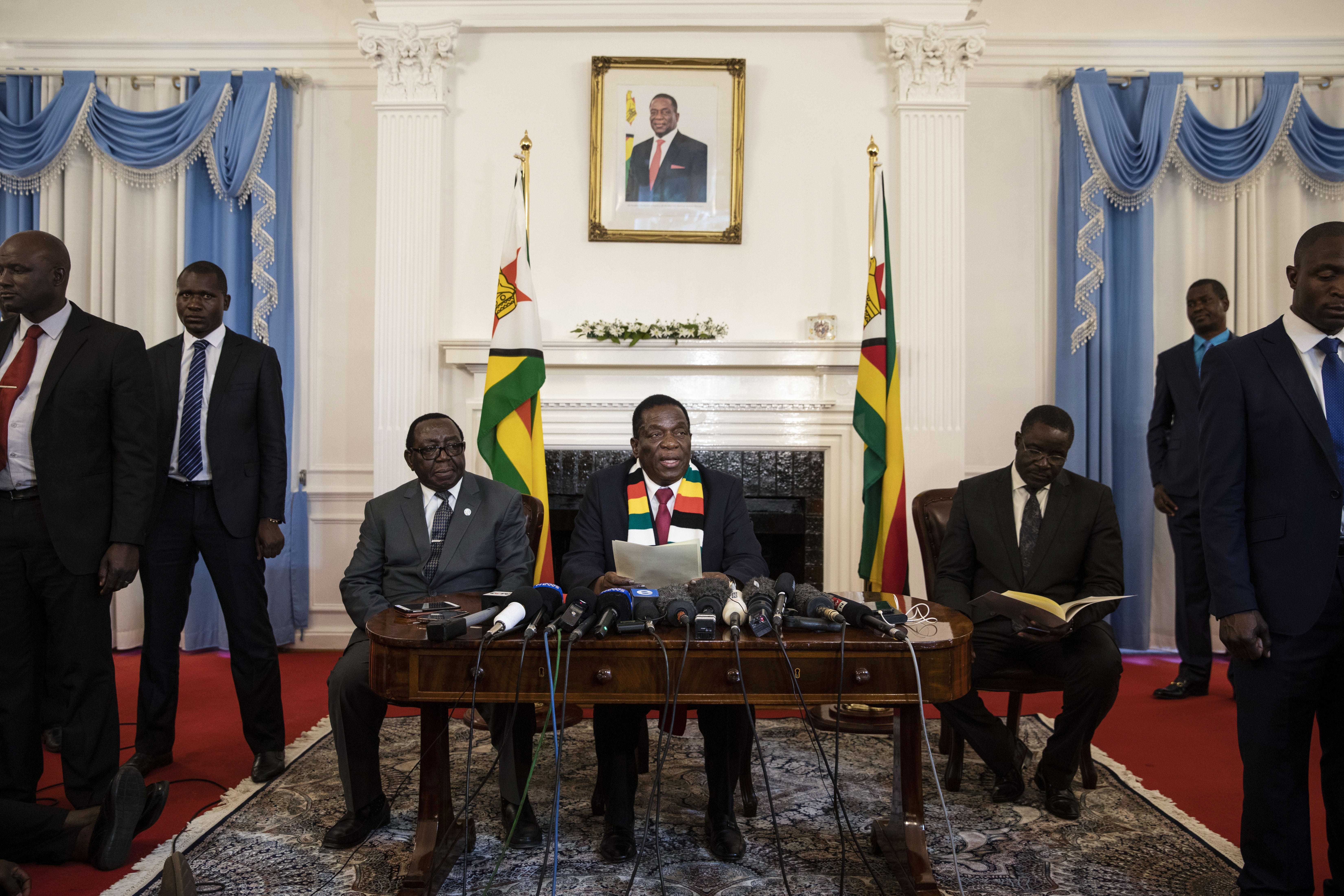
Photo: Dan Kitwood/Getty Images
THE MAN NOW tasked with restoring functional democracy in Zimbabwe has a past deeply entwined with Mugabe’s. Mnangagwa is known by many names: “The Crocodile,” “ED,” and the “Butcher of Matabeleland” — a reference to the massacre of thousands in the province. To many, Mnangagwa is a deeply revered figure — a hero of the independence war fought in the 1960s and 1970s.
It was during the Zimbabwean civil war in the 1980s — between Mugabe’s ZANU-PF party and the opposition Zimbabwe African People’s Union, led by the late Joshua Nkomo — that Mnangagwa’s reputation was born. As Mugabe’s state security minister, he oversaw Operation Gukurahundi: The 5th Brigade, ethnically Shona, massacred thousands of the minority Ndebele people in the southwestern region of Matabeleland who were thought to be ZAPU supporters. It is estimated that as many as 20,000 were killed.
“Mnangagwa was the more volatile person in this war. He basically threatened people, which is why, especially in the south of the country, among the Ndebele people, his ascension to power has been viewed with fear — because of his key role,” a Zimbabwean journalist, who asked not to be identified in the wake of Mugabe’s overthrow, told The Intercept last year. “It’s easy to blame him for what happened, but actually, the person who was ultimately responsible for what happened was Mugabe himself.”
The massacre at Matabeleland opened up a deep wound in Zimbabwe, with no moves toward an apology or reparations. Mugabe, in an interview, once went so far as to blame the Ndebele for their own slaughter: “The dissidents did more harm than the harm that the people allege was done by the 5th Brigade.”
Mnangagwa has long been cast as Mugabe’s enforcer and the mastermind of his brutal policies. As a top aide, he oversaw security forces as violence broke out in the wake of election rigging in 2008, as well as the repossession and redistribution of white-owned farms to landless black people that began around 2000. The policy caused an international backlash: The U.S. and other countries slapped sanctions on Zimbabwe. Mugabe hit back, calling the sanctions “racist.” Last year, Mnangagwa promised to compensate those who lost their land and make diplomatic overtures to the international community.
Yet the U.S. posture on easing tension with Zimbabwe is conditioned on more than just compensation for white landowners. According to a State Department fact sheet, “The easing of restrictive measures, including targeted sanctions and travel bans, will only occur in the context of credible, transparent, and lasting democratic reforms.” With ZANU-PF remaining in control, Mnangagwa will need to follow through on his promised democratic reforms to repair a relationship with the U.S.

Photo: Zinyange Auntony/AFP/Getty Images
SO FAR, DESPITE promises, the restoration of a functioning democracy and a united Zimbabwe does not appear in the offing under Mnangagwa. As he focuses on his inauguration, reports about the intensifying crackdown against opposition activists trickled out of Harare. Less than 24 hours after the presidential election results were called, riot police attempted to chase away international journalists with shields from a planned opposition press conference — reminiscent of past elections where opposition was silenced. Reporters Without Borders has slappedZimbabwe as one of the most restrictive countries for press freedom.
“Zimbabwe has not known peace for the past 38 years,” Chamisa, the opposition leader, told reporters after police left and the media briefing commenced. “Zimbabweans have not known justice for the past 38 years. Zimbabweans have not known their happiness and dignity of life for the past 38 years.”
With independent election monitors set to release further reports on the vote, Chamisa vowed to formally challenge the results in court with evidence and called for an urgent meeting with the heads of the South African Development Community, an intergovernmental body that covers the southern part of the continent. Along with the African Union, the European Union, China, and other countries, the SADC sent a mission to monitor the Zimbabwean election.
Yet the SADC may offer the opposition no succor: SADC’s preliminary report was largely complimentary, lauding Zimbabwe’s “remarkable” progress under their new constitution and the peaceful election day, though the group also noted “delays in the release of voters’ roll,” “alleged lack of transparency,” and the election commission’s bias toward one political party over others. The SADC is currently chaired by South African President Cyril Ramaphosa. He congratulated Mnangagwa in a tweet after the election and added, “We urge the people of Zimbabwe to accept the outcome of the election or follow the legal route should they wish to challenge it. We look forward to great working relations with you.”
Meanwhile, instead of mending ties with the U.S., Zimbabwe appears to be taking a turn toward America’s adversaries. Chinese President Xi Jinping congratulated Mnangagwa on his re-election, and they are expected to meet next month during the Forum on China-Africa Cooperation. Iran and North Korea have both congratulated Mnangagwa on his re-election and pledged support for a continued relationship.
With Chamisa expected to file an appeal in court before a Friday deadline and looming reports from election observers, supporters of Zimbabwe’s opposition face a long road ahead. As Mnangagwa and his foreign business partners celebrate, MDC supporters like Manyange are pessimistic that the observers’ reports or international pressure will emerge. “I have a feeling that nothing might come out of the engagements,” Manyange said. “SADC, AU, and Zanu PF [sleep] on the same bed.”
Despite the euphoria of Mugabe’s ouster and hopes for the election, little appears poised for change in Zimbabwe. “The situation for ordinary Zimbabweans remains the same — cash shortages, unemployment, power cuts, lack of clean water,” Dr. Tinashe Mushakavanhu, an independent journalist and lecturer, told The Intercept by email. “While re-engaging the international community is of importance, Mnangagwa’s challenge is also to clean up the system and rid [it] of corrupt government officials. If there is no accountability or transparency, what good is international relations?”
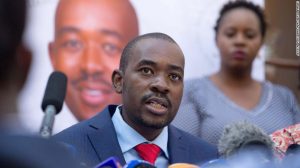
COMMENTS